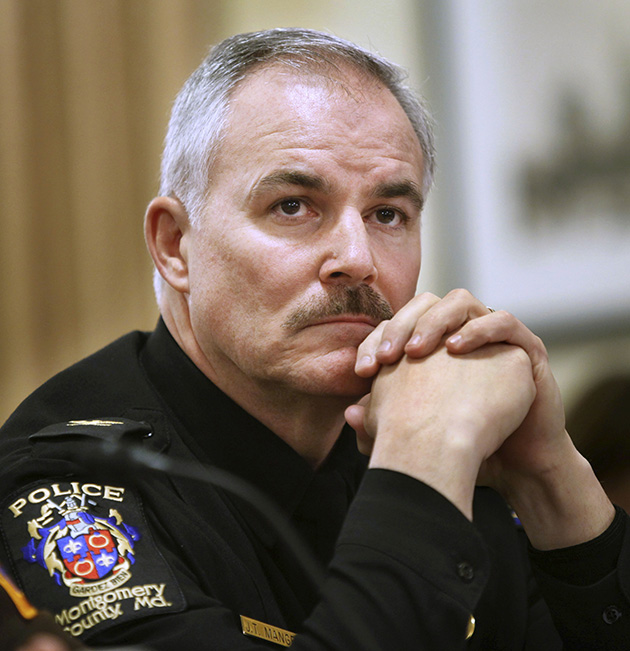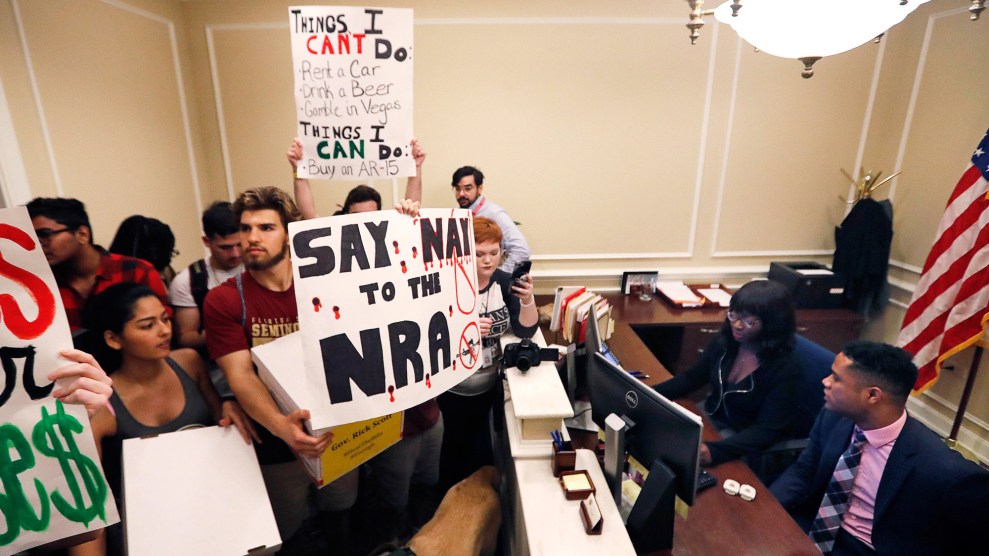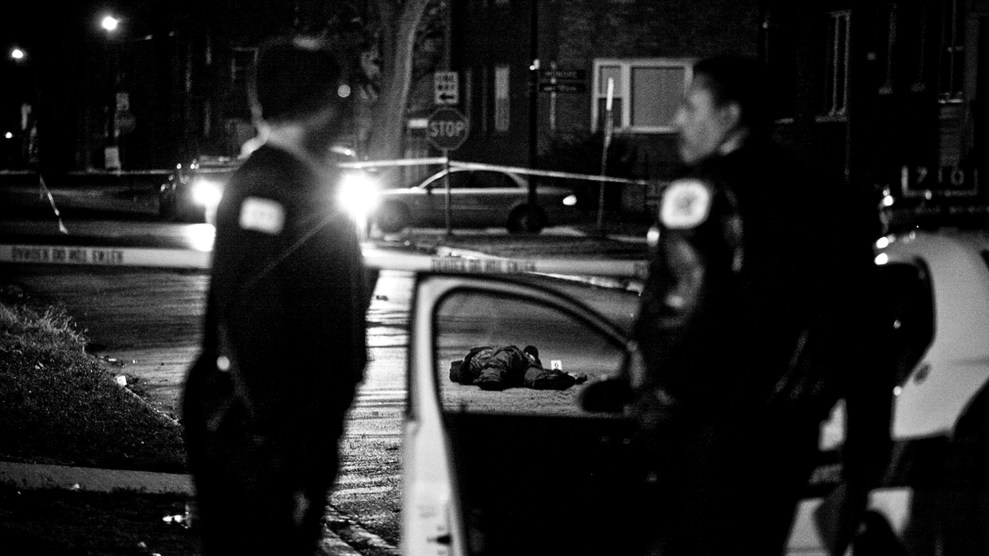
J. Thomas Manger, police chief of Montgomery County, Maryland, testifies at a 2009 hearing on Capitol Hill.
Manuel Balce/AP
In the roughly three weeks since a deranged 19-year-old shot up a Florida high school, leaving 17 people dead, President Donald Trump has been peddling a favorite trope of the NRA—that having more good guys with guns around can stop bad guys with guns. Among other things, Trump has proposed arming some teachers and school personnel so they can respond in the event of an attack on campus.
This might sound like a good idea to people who have never worked in a classroom. But even the quintessential “good guys with guns” have a big problem with it—namely, law enforcement leaders who believe such a move would be “dangerous.”
J. Thomas Manger, president of the Major Cities Chiefs Association, is also the longtime police chief in Montgomery County, Maryland, which, like Parkland, Florida, is a relatively affluent place. Arming teachers, he says, would put police officers and others in a problematic situation. “A cop shows up and there’s people with guns in their hand. We don’t know who’s the good guy, who’s the bad guy. That’s very dangerous for the police. And it’s dangerous for the community,” Manger told me. “The more guns that are coming into the equation, the more volatility and the more risk there is of somebody getting hurt.”
“Officers are making decisions in split seconds when they see a weapon in any circumstance, much less in something as volatile as a mass shooting at a school,” adds Ronal Serpas, former chief of the New Orleans Police Department. “So of course I do worry that [teachers or staff] who have weapons in their hands may be seen as a threat in that split second.” (Serpas serves as co-chair of Law Enforcement Leaders to Reduce Crime and Incarceration, a group of cops, prosecutors, and other law enforcement officials that advocates for criminal justice reform, but he stresses he is not speaking on behalf of the group.)
The nation’s police chiefs have been pretty quiet on gun regulation in the wake of Parkland, so I reached out to a few to get their take on some of the ideas that have been floated. Truly tackling America’s gun violence problem will require much more than a legislative Band-Aid, they all said. It would require better access to mental health services and training to help key community members recognize the warning signs that someone is in a crisis.
Arming more civilians, they agreed, almost certainly will not help matters. What would help, they say—something Congress could do now—is a new assault weapons ban, laws requiring universal background checks, and a repeal of the Dickey Amendment, which prohibits the federal government from funding research on gun violence.
“I just don’t see any legitimate need for assault weapons. They’re weapons of war. They’re not for hunting. There’s no reason for them. None. Zero,” says Chuck Wexler, executive director of the Police Executive Research Forum, an independent research group aimed at helping police do their jobs better. Proposals to raise the legal age to buy an assault weapon from 18 to 21 have gotten some bipartisan support. But that’s not nearly enough, Wexler says. Manger agrees, calling the age-limit proposals “an absolute baby step.”
A more meaningful move, they say, would be to strictly enforce universal background checks and close the federal loophole that lets people buy guns from private sellers—including at gun shows—without a background check.
That Dickey Amendment repeal is also high on some chiefs’ wish lists: “You look at the number of murders that we have in the United States—the number of shootings that we have that don’t result in a death—but we have probably three times as many shootings as we have homicides, where people aren’t killed. And I’m not just talking about murders. Suicides. I’m talking about accidental shootings,” Manger says. “It’s just thousands upon thousands of people dying because they’ve been killed by a firearm, and anything we can do to study that to reduce that number, I think it’s critical that we’re able to do that.”
Police, being exposed to potentially violent situations on a daily basis, naturally have a stake in the gun-control debate. So why aren’t more of the brass, whose troops are on the line, taking a stronger public stand? I posed this question to Wexler, who has served as a high-level civilian assistant to Boston’s police commissioner. Many police, he replied, are likely just “frustrated” by politicians “who are unduly influenced” by the gun lobby and unwilling to take law enforcement recommendations seriously.
Jim Bueermann, who served as police chief in Redlands, California, and is now president of the nonprofit Police Foundation, adds that top police leaders are expected to remain apolitical. So “I think there’s a reticence to weigh in on an issue that has such significant political volatility.”
There’s also the issue of tensions between the brass and rank-and-file officers. “If you’re the police chief or the sheriff, if half of your workforce agrees with you and the other half disagrees with you, I think there’s going to be an inclination to stay out of it,” Bueermann says. But “If police chiefs are asked pointedly what do they think about it, then they will almost always answer that question.”

















